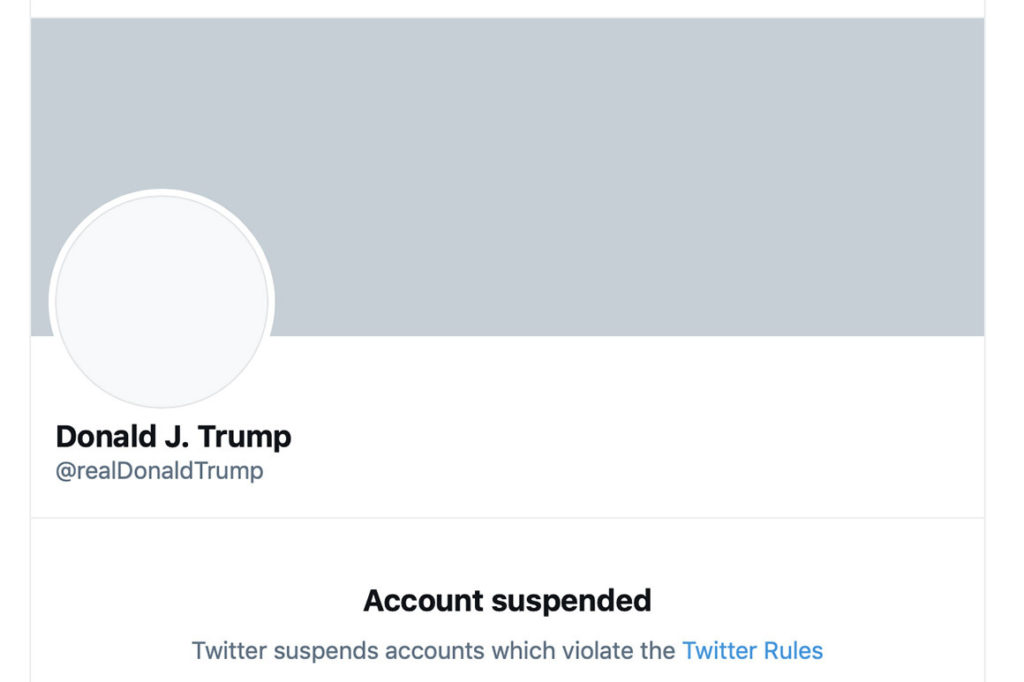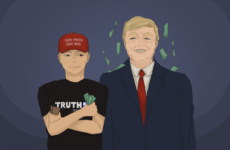Former President Donald Trump P’00 is currently banned from Facebook, Twitter, and other social media platforms in light of his encouragement of the riots at Capitol Hill on January 6. In a further attempt to muffle Trump’s harmful, violence-inciting rhetoric, Google and Apple have removed Parler, a popular Twitter-alternative used by many Trump supporters, from their app stores.
Trump is no stranger to Twitter. Since 2009, he has tweeted more than 47,000 times to his 89 million followers. During his time in office, Trump tweeted a total of 34,000 times, all of which were considered official statements by the President of the United States.
Trump’s reliance on social media is evidence of how the United States’s political landscape is migrating to the digital world. He is only one of many government officials who have started to use social media as a medium to share their opinions, request donations, and more. However, as social media membership has increased, it has also been used as a platform to disseminate unverified facts and data, employ undisciplined and polarizing rhetoric, and spread hate and extremist speech.
Trump is a culprit of the latter. While the decision to expel Trump’s online presence has been met with approval from his critics, some believe that the ban might be a form of censorship and a violation of the First Amendment.
Several political figures have denounced the deactivation of Trump’s social media, including Polish government officials who have gone as far as to draft legislation illegalizing efforts to deplatform politicians. Polish Prime Minister Mateusz Morawiecki wrote on Facebook, “Algorithms or the owners of corporate giants should not decide which views are right and which are not. There can be no consent to censorship.” Given the Polish government’s history of posting anti-LGBTQIA+ and anti-refugee rhetoric, this view does not come as a surprise.

In the aftermath of the Capitol riot, former President Trump’s Twitter, Facebook, and other social media accounts were deactivated. Photo courtesy of POLITICO
In actuality, this is by no means a violation of the First Amendment. No law suspends the ability of private corporations, including private social media software, to control how their products and services are used.
RonNell Andersen Jones, a law professor at the University of Utah, said to The New York Times, “It’s become popular — even among those who plainly know better — to label all matters restricting anyone’s free speech as a ‘First Amendment issue,’ but the First Amendment limits only government actors, and neither a social media company nor a book publisher is the government.”
There have to be checks and balances to prevent the misuse of social media by government actors. Trump wielding social media to spread election fraud propaganda is a prime example of the types of content that must be censored to maintain peace and proper democratic procedures.
On January 6, Trump supporters breached the Capitol carrying assault weapons in an attempt to overturn the outcome of the 2020 U.S. presidential election. Instead of condemning the right-wing extremists who threatened the very existence of a functioning democracy, Trump called the rioters “great patriots” and, in a video addressing his followers, said, “We love you. You’re very special.”
The effort to deplatform Trump has raised an important question: How should social media corporations govern their platforms?
Concerns about corporate power generally surround a company’s ability to silence a politician’s past, present, and future speech. Because of the monopolization of social media, these corporations would be silencing speech with little transparency and almost zero accountability. This begs a second question: How should lawmakers ensure platform governance is both constitutional and impartial?
Lawmakers and private social media corporations alike must agree to establish preventative policies that clearly outline acceptable conduct. These measures are of utmost importance in regulating political communication, ensuring a peaceful and proper democratic process, and maintaining an online atmosphere free of hateful rhetoric by political figures.
Ultimately, social media platforms should facilitate communication between politicians and the public, but this should all be within certain regulations to prevent violence and further damage to American values.




